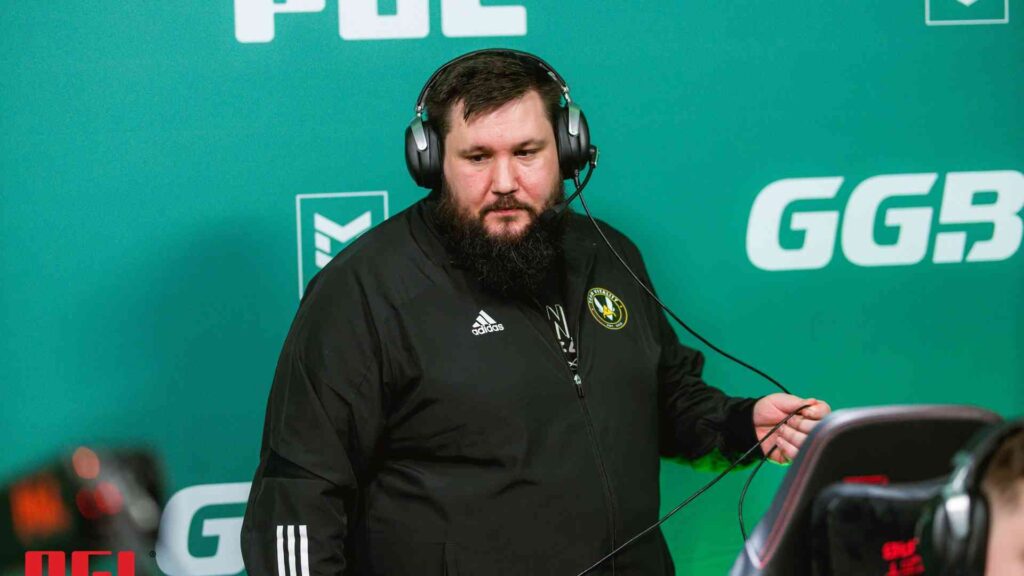Counter-Strike: Global Offensive (CS:GO) is a multiplayer first-person shooter game that has gained immense popularity since its release in 2012. The game has had its fair share of controversies over the years, including several significant issues related to coaches and their role in the game. In this article, we will discuss some of the main CS:GO benchmarks, including the coaches’ talk restriction in 2016, the coaching bug, RMR online presence restriction, behavior restrictions starting at the Stockholm CS: GO major, and the recent decision to not pay for coaches’ travel for the BLAST.tv Paris Major.
In 2016, CS:GO introduced a restriction for coaches, which aimed to prevent cheating by limiting coaches’ communication with the team during the game. The restriction was a significant change that affected the game’s dynamics and the way teams played. Before this rule, coaches were allowed to communicate with players during games, which gave them an unfair advantage. After its introduction, the coaches were now only allowed to talk during timeouts and breaks. The rule was a contentious issue that sparked debate among the CS:GO community. While some players felt that the restriction was necessary to prevent cheating, others argued that it made the game more challenging and less enjoyable to play.
With the pandemic came online events and games. Everything was held online as the whole world shut down due to the COVID-19 pandemic. In 2020, CSGO introduced the Regional Major Rankings (RMR) system, which allowed teams to earn points based on their performances in various tournaments. However, the system came with a restriction that prevented teams from participating in online games and events if they had a coach or any other staff in the same room as the players during the games.
Another significant issue related to coaches was the coaching bug. This bug allowed coaches to exploit a flaw in the game and gain an unfair advantage over the opposing team. Coaches could use the spectator camera to get a bird’s eye view of the map, which they could use to help their team gain an advantage. This bug threatened the game’s integrity and competitive nature, and it took several months for Valve to address and fix the issue. ESIC launched an investigation and the coaches that were proven to have been cheating by using the bug in official matches were punished and banned. This was a significant blow for some coaches, as it prevented them from participating in some of the most prestigious tournaments alongside their respective teams.
For the duration of the bans, the coaches were not able to be physically present around the team starting fifteen minutes before a match was scheduled to begin up until it ends, and were not able to communicate, actively or passively, with the players for the same period of time. They were not allowed inside the game server during official matches and could not take part in the map veto or communicate with the team during this progress. Some notable coaches that were banned were HUNDEN, RobbaN, ave, starix, lmbt, Apoka, and Twista to name a few. Additionally, Valve also stepped in and banned some coaches from coaching at Majors. Coaches such as HUNDEN and guerri, for example, got banned until after the second Major of 2023, whereas some others like zoneR, Apoka, Reijin and Twista received a permanent ban from Majors.
The Stockholm Major in October 2021 marked a new era for CSGO. Valve implemented new behavior restrictions that prevented team huddles. Many teams have a team huddle before the games are being played. Examples of such teams are FaZe, NAVI and Heroic. Danny ‘zonic’ Sørensen, coach of Vitality, revealed on Twitter that Valve had instructed PGL to enforce strict rules against coaches. The rules included no touching the players except during a timeout (no high-fives, fist bumps, etc.) and no shouting (coaches can’t even say “nice”).
As the Regional Major Rankings (RMR) for CSGO begin in 2023, Joshua ‘m1cks’ Micks recently tweeted out that Valve will no longer be paying to send coaches to the RMRs, only players. According to Micks most tournaments usually pay to send six or seven people to the events. That includes players, the coach, and the team’s manager. This decision has received criticism from the CS:GO community, as many coaches rely on these expenses to attend tournaments. The decision not only affects coaches but could also have an impact on the teams they work with, potentially hindering their performance. The lack of financial support for coaches highlights the ongoing debate about the role of coaches in CS:GO and whether they are valued as much as they should be. The decision sparked a new conversation about the role of coaches in CS:GO. Many people argue that coaches are an essential part of the team and that their contributions should be recognized and rewarded. Others feel that coaches were not necessary, and teams should focus on improving their own skills. The decision not to pay for coaches’ travel expenses might also have practical implications. It might mean that many coaches that are not part of tier-one teams won’t be able to travel to the RMRs, which could have a significant impact on their team’s performance.
Valve has, so far, received widespread criticism from the CS:GO community. Many people feel that coaches played a significant role in their team’s success and that they deserved to be treated with more respect. Yesterday, Micks tweeted out that BLAST has reverted the decision and allowed for one more person to be included in the travel expenses plans, which now means that all teams can get their coach to the RMRs without paying for it themselves, which will be a huge benefit to smaller teams that do not compete in tier 1. The controversy surrounding the decision not to pay for coaches’ travel expenses highlights the ongoing debate about the role of coaches in CS:GO.



